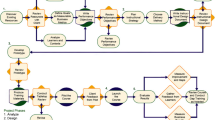Abstract
Higher education institutions and involved stakeholders can derive multiple benefits from learning analytics by using different data analytics strategies to produce summative, real-time, and predictive insights and recommendations. However, are institutions and academic as well as administrative staff prepared for learning analytics? A learning analytics benefits matrix was used for this study to investigate the current capabilities of learning analytics at higher education institutions, explore the importance of data sources for a valid learning analytics framework, and gain an understanding of how important insights from learning analytics are perceived. The findings reveal that there is a lack of staff and technology available for learning analytics projects. We conclude that it will be necessary to conduct more empirical research on the validity of learning analytics frameworks and on expected benefits for learning and instruction to confirm the high hopes this promising emerging technology raises.
Similar content being viewed by others
References
Azevedo, R., Johnson, A., Chauncey, A., & Burkett, C. (2010). Self-regulated learning with MetaTutor: Advancing the science of learning with metacognitive tools. In M. S. Khine & I. M. Saleh (Eds.), New science of learning (pp. 225–247). New York: Springer.
Bannert, M. (2009). Promoting self-regulated learning through prompts. Zeitschrift für Pädagogische Psychologie, 23(2), 139–145.
Berland, M., Baker, R. S. J. d., & Bilkstein, P. (2014). Educational data mining and learning analytics: applications to constructionist research. Technology, Knowledge and Learning, 19(1–2), 205–220. doi:10.1007/s10758-014-9223-7.
Bolman, L. G., & Deal, T. E. (2008). Reframing organizations: Artistry, choice, and leadership. San Fransico: Jossey-Bass.
Coates, H. (2010). Defining and monitoring standards in Australian higher education. Higher Education Management and Policy, 22(1), 41–58.
d’Aquin, M., Dietze, S., Herder, E., Drachsler, H., & Taibi, D. (2014). Using linked data in learning analytics. eLearning Papers, 36, 1–9.
Ertmer, P. A., & Newby, T. J. (1996). The expert lerner: strategic, self-regulated, and reflective. Instructional Science, 24(1), 1–24.
Gašević, D., Dawson, S., & Siemens, G. (2015). Let’s not forget: learning analytics are about learning. TechTrends, 59(1), 64–71. doi:10.1007/s11528-014-0822-x.
Gašević, D., Dawson, S., Rogers, T., & Gašević, D. (2016). Learning analytics should not promote one size fits all: the effects of instructional conditions in predicting academic success. Internet and Higher Education, 28, 68–84.
Gibson, D. C., & de Freitas, S. (2016). Exploratory analysis in learning analytics. Technology, Knowledge and Learning, 21(1), 5–19. doi:10.1007/s10758-015-9249-5.
Gibson, D. C., & Ifenthaler, D. (2016). Preparing the next generation of education researchers for big data in higher education. In B. Kei Daniel (Ed.), Big data and learning analytics: Current theory and practice in higher education. New York: Springer.
Greller, W., & Drachsler, H. (2012). Translating learning into numbers: a generic framework for learning analytics. Educational Technology & Society, 15(3), 42–57.
Ifenthaler, D. (2015). Learning analytics. In J. M. Spector (Ed.), The SAGE encyclopedia of educational technology (Vol. 2, pp. 447–451). Thousand Oaks: Sage.
Ifenthaler, D., & Schumacher, C. (2016). Student perceptions of privacy principles for learning analytics. Educational Technology Research and Development, 64(5), 923–938. doi:10.1007/s11423-016-9477-y.
Ifenthaler, D., & Widanapathirana, C. (2014). Development and validation of a learning analytics framework: two case studies using support vector machines. Technology, Knowledge and Learning, 19(1–2), 221–240. doi:10.1007/s10758-014-9226-4.
Johnson, L., Adams Becker, S., Estrada, V., & Freeman, A. (2014). NMC horizon report: 2014 higher education edition. Austin: The New Media Consortium.
Kevan, J. M., & Ryan, P. R. (2016). Experience API: flexible, decentralized and activity-centric data collection. Technology, Knowledge and Learning, 21(1), 143–149. doi:10.1007/s10758-015-9260-x.
Locke, W., Cummings, W. K., & Fisher, D. (Eds.). (2011). Changing governance and management in higher education. Dordrecht: Springer.
Lockyer, L., Heathcote, E., & Dawson, S. (2013). Informing pedagogical action: aligning learning analytics with learning design. American Behavioral Scientist, 57(10), 1439–1459. doi:10.1177/0002764213479367.
Long, P. D., & Siemens, G. (2011). Penetrating the fog: analytics in learning and education. EDUCAUSE Review, 46(5), 31–40.
Pardo, A., & Siemens, G. (2014). Ethical and privacy principles for learning analytics. British Journal of Educational Technology. doi:10.1111/bjet.12152.
Solove, D. J. (2004). The digital person: Technology and privacy in the information age. New York: New York University Press.
Author information
Authors and Affiliations
Corresponding author
Rights and permissions
About this article
Cite this article
Ifenthaler, D. Are Higher Education Institutions Prepared for Learning Analytics?. TechTrends 61, 366–371 (2017). https://doi.org/10.1007/s11528-016-0154-0
Published:
Issue Date:
DOI: https://doi.org/10.1007/s11528-016-0154-0




